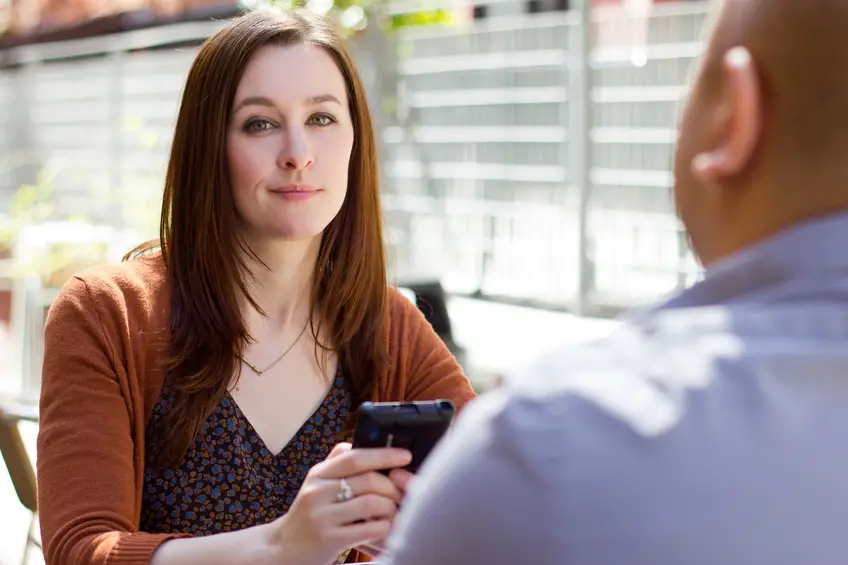If you often find yourself oversharing personal details or feeling guilty for saying “no,” it might be time to set some healthier boundaries. Don’t worry, it’s not about building a fortress around yourself. It’s about finding that sweet spot where you feel comfortable sharing what feels right, and confident in politely declining when you don’t.
1. You feel a constant need for approval.

Ever catch yourself fishing for compliments or apologizing excessively? Maybe you change your behavior to please others, even if it makes you uncomfortable. This constant need for external validation can lead to oversharing as a way to seek positive reinforcement, but it often backfires and leaves you feeling drained.
2. Saying “no” feels like a personal attack.

Whether it’s a social invitation, a work request, or even a favor for a friend, declining anything can feel like a major hurdle. You might worry about disappointing others or damaging relationships. But remember, saying “no” is not a rejection of the person, it’s simply a way to protect your time and energy.
3. You share intimate details too quickly.

Have you ever spilled your deepest secrets or personal struggles to someone you barely know? Oversharing can be a way to establish quick intimacy, but it can also feel overwhelming for the listener and might lead to regrets later on, Psychology Today warns. Take your time to build trust before divulging sensitive information.
4. You feel responsible for other people’s emotions.

Do you feel guilty if someone’s upset, even if it has nothing to do with you? Or perhaps you take on the burdens of others as if they were your own. This hypersensitivity to other people’s emotions can lead to oversharing as a way to appease them, but it ultimately puts an unhealthy burden on yourself.
5. You struggle to set limits in conversations.

Maybe you find it hard to steer conversations away from topics that make you uncomfortable. Or perhaps you feel compelled to match someone’s level of disclosure, even if it means sharing more than you’d like. Learning to redirect or gracefully exit a conversation is a crucial skill for maintaining healthy boundaries.
6. You over-apologize for everything.

Saying “sorry” is a natural way to express remorse, but over-apologizing for minor inconveniences or things outside of your control can be a sign of weak boundaries. It sends the message that you don’t value your own needs and are willing to take on blame unnecessarily.
7. You struggle to express your needs and desires.

Do you often put the needs of others before your own? Maybe you have difficulty asking for help or articulating what you want. This lack of self-advocacy can lead to resentment and frustration, as your boundaries are repeatedly crossed without you voicing your concerns.
8. You fear conflict and confrontation.

Avoiding conflict is a common human tendency, but if it means constantly sacrificing your own needs to maintain peace, it becomes a problem. Healthy boundaries inevitably involve some degree of conflict, and learning to navigate those situations is crucial for personal growth and well-being.
9. You feel responsible for other people’s happiness.

It’s natural to want the people around you to be happy, but feeling like their happiness is your sole responsibility is a recipe for burnout. You are not a magician, and you can’t control other people’s emotions. Focusing on your own well-being is not selfish; it’s necessary for healthy relationships.
10. You have difficulty being alone with your thoughts.

Do you constantly seek out external stimuli like social media, TV, or the company of others? Maybe you find it difficult to simply sit with yourself and your own thoughts. Learning to be comfortable in your own company is a key step in establishing healthy boundaries. It allows you to connect with your own needs and desires without external influence.
11. You seek validation through social media.

Posting every detail of your life online and constantly checking for likes and comments can be a sign of oversharing. While it’s fun to share experiences, relying on social media for self-worth can be detrimental. Remember, the online world is curated, and comparing yourself to others is a recipe for dissatisfaction.
12. You have a hard time keeping secrets.

If you find it difficult to hold onto confidential information or feel compelled to share gossip, it might be a sign of weak boundaries. Respecting other people’s privacy is essential for building trust and maintaining healthy relationships. It’s okay to decline to share information that doesn’t belong to you.
13. You feel guilty for having needs.

Do you feel selfish for prioritizing your own well-being? Maybe you feel like you don’t deserve to take a break or indulge in something you enjoy. This internalized guilt is a major obstacle to setting healthy boundaries. Remember, taking care of yourself is not only okay, it’s essential for your overall well-being.
14. You’re drawn to people who take advantage of you.

If you repeatedly find yourself in relationships where your boundaries are constantly crossed, it’s time to examine those patterns. People with weak boundaries often attract those who are willing to exploit their generosity. Learning to set firm limits can help you break this cycle and cultivate healthier connections.
15. You struggle to differentiate between healthy and unhealthy relationships.

Do you find it difficult to recognize when a relationship is toxic or harmful? Maybe you excuse bad behavior or minimize your own discomfort. As BetterUp notes, learning to identify red flags and setting clear standards for how you want to be treated is essential for building healthy relationships.
16. You feel drained after spending time with certain people.

Ever felt emotionally exhausted after interacting with someone? Maybe you feel like you’ve given more than you received. This feeling of depletion can be a sign that your boundaries have been crossed. Pay attention to how you feel after spending time with different people, and prioritize those who uplift and energize you.



